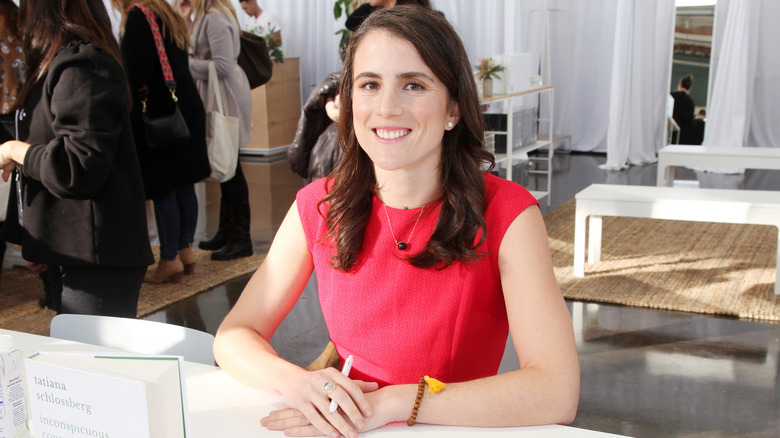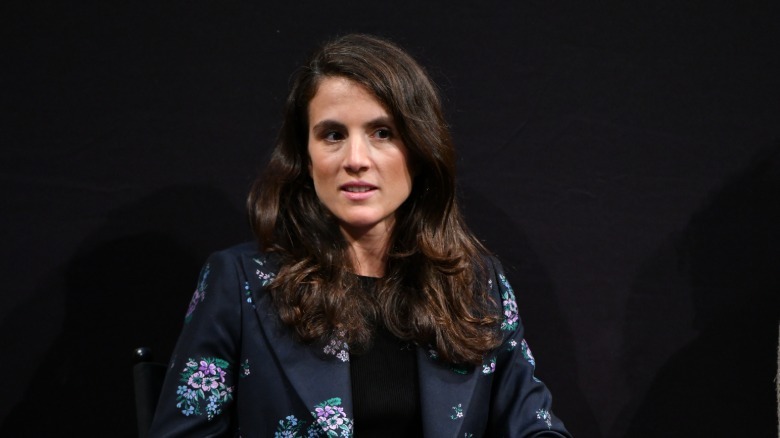Kennedy Family Member Tatiana Schlossberg's Terminal Cancer Diagnosis, Explained
In a November 2025 article for The New Yorker, Tatiana Schlossberg revealed her yearlong battle with a rare mutation of acute myeloid leukemia called Inversion 3. The diagnosis came after a doctor noticed the Kennedy granddaughter's high white blood cell count just a few hours after giving birth to her daughter. Schlossberg had just overcome postpartum hemorrhaging (a dangerous but preventable cause of some maternity deaths), and was ushered off to a new floor of the hospital to be kept for observation. According to Schlossberg's piece in The New Yorker, the disease is more common in elderly patients and Ground Zero survivors, not 30-something mothers who were nowhere near the 9/11 attacks.
All things considered, Schlossberg's diagnosis made for a puzzling revelation. Myeloid leukemia is a type of cancer that develops in the bones and into the bloodstream, often without the common formation of tumors that are so synonymous with a cancer diagnosis. Individuals with acute myeloid leukemia (AML) may experience weight loss and a lack of appetite, fatigue, night sweats, and fevers. Schlossberg's specific subtype of AML, Inversion 3, is a rare genetic mutation that targets chromosome 3 and is viewed unfavorably compared to normative AML. To combat the diagnosis, Schlossberg shared that she had begun chemotherapy and bone marrow transplants just days after giving birth.
Schlossberg's decision to join a clinical trial
"I did not — could not — believe that they were talking about me," Tatiana Schlossberg wrote in The New Yorker. "I wasn't sick. I didn't feel sick. I was actually one of the healthiest people I knew." The diagnosis left the journalist in a state of confusion and sadness as she recovered from childbirth with the treatment plan for her new condition. After exhausting rounds of chemotherapy and bone marrow transplants, Schlossberg decided to try something different.
In January 2025, the Kennedy granddaughter signed up for the first of several clinical trials, the cat-T Cell therapy program, which initially used T-cells from her sister, Rose Schlossberg, who also provided blood for bone-marrow transplants. Sadly, this and other trials and treatments haven't worked permanently, with Schlossberg relapsing and going into remission several times. She suffered through many painful complications along the way – cytokine-release syndrome, a form of Epstein-Barr virus, graft-versus-host disease, and others, with her lungs filling with liquid and her liver experiencing great pain.
Schlossberg railed against her cousin, Secretary of Health and Human Services Robert F. Kennedy, for the financial cuts he had enacted and the termination of medical programs that had helped her and so many others. Finally, she ended her essay in The New Yorker by accepting the doctor's diagnosis that they can only keep her alive for a year at most. "My first thought was that my kids, whose faces live permanently on the inside of my eyelids, wouldn't remember me," wrote Schlossberg, who has been spending as much time with her children as possible.

